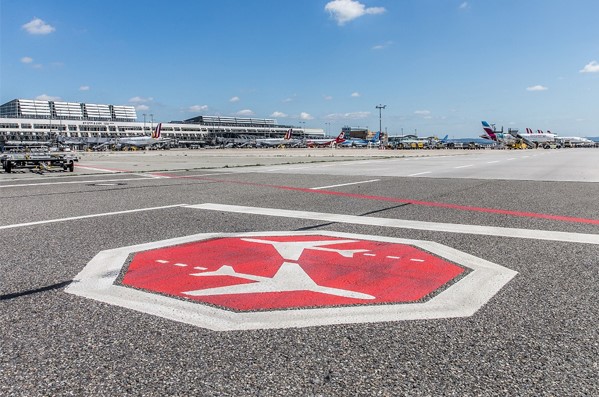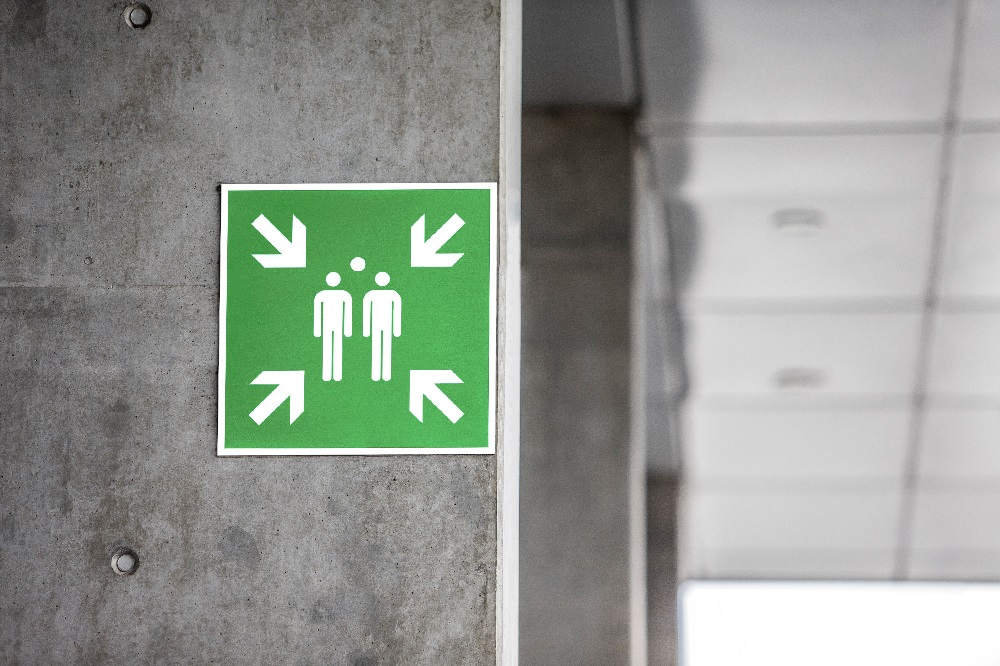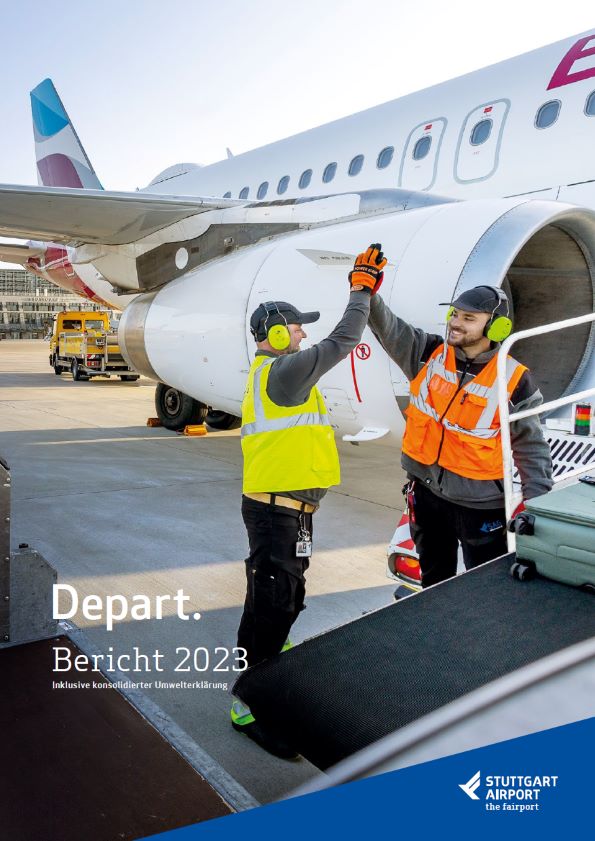Our mission: We strive to become one of the best-performing and most sustainable airports in Europe – the fairport.
DEPART. Report 2023.
Each year Stuttgart Airport makes its performance on an economic, social and ecologic level transparent to all stakeholders.
Depart. Report 2023 (in German)
Please contact fairport@stuttgart-airport.com on questions regarding sustainability and corporate responsibility at Stuttgart Airport.
fairport Code

The fairport code is the foundation for responsible behaviour at Stuttgart Airport. It applies throughout the airport group and describes our values and our understanding of sustainability. It also guides the behaviour of employees towards each other and towards customers, business contacts, competitors, authorities and other interest groups. The updated fairport code came into force in March 2024. It applies to all companies at the airport site in which the Flughafen Stuttgart GmbH (FSG) holds a majority stake. The environmental policy of FSG is also integrated into the code.
Compliance describes the lawful behaviour of a company, its bodies and employees. In addition to applicable laws and regulations, it also includes internal company guidelines. Stuttgart Airport considers compliance to be a company-wide requirement and part of the sustainability strategy.
fairport CodeFAIRPORT ADVISORY COUNCIL

As the first business in the industry Stuttgart Airport founded an academic sustainability advisory council in February 2014. The fairport council discusses the strategic relevance of corporate responsibility topics. In annual meetings Stuttgart Airport asks the six member expert panel for their constructive and well-founded criticism and advice. Together they elaborate approaches for developing the fairport strategy.
Members of the fairport Advisory Council:
- Prof. Dr. Hans-Dietrich Haasis (chairman of the advisory council, University of Bremen)
- Dr. Dietrich Brockhagen (CEO, atmosfair GmbH)
- Prof. Dr. Dr. h. c. Hartmut Graßl (former director of Max-Planck-Institut, Hamburg)
- Prof. Dr. Ralf Isenmann (University of Bremen)
- Prof. Dr. Claudia Kemfert (German Institute for Economic Research)
- Prof. Dr. Martin Müller (University of Ulm)
